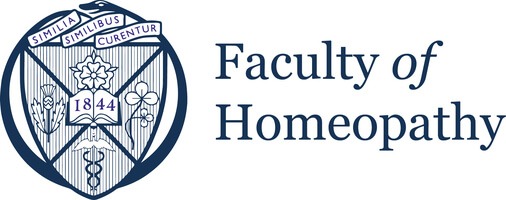A cancer diagnosis and its subsequent treatment can be an overwhelming journey, filled with physical, emotional, and psychological challenges. While conventional treatments like chemotherapy, radiotherapy, and surgery are the cornerstones of modern oncology, there is a growing understanding that true healing encompasses more than just the eradication of cancer cells. This is where integrative oncology comes in, offering a holistic and patient-centered approach to cancer care. London has emerged as a prominent hub for integrative medicine in the UK, providing a wide array of evidence-based complementary therapies to support patients on their path to wellness.
It is important to distinguish between complementary and alternative therapies. Complementary therapies are used alongside conventional medical treatments to support a patient's overall well-being, manage side effects, and improve quality of life. In contrast, alternative therapies are used instead of conventional medical treatments and lack scientific evidence to support their efficacy. This article focuses on the evidence-based complementary therapies available in London, providing a comprehensive guide to integrative oncology. Understanding Integrative Cancer Care
Integrative oncology is a patient-centered, evidence-informed field of cancer care that intelligently combines psychological, nutritional, lifestyle, and complementary interventions alongside conventional cancer treatments. The primary goal of integrative oncology is to support a better quality of life, improve resilience, minimize the side effects of treatment, and ultimately, improve outcomes. This approach to cancer care is rooted in a philosophy that addresses the whole person—body, mind, and spirit—recognizing the intricate connections between these aspects of our being. By creating personalized treatment plans tailored to each individual's unique needs and circumstances, integrative oncology empowers patients to take an active role in their healing journey. The benefits of an integrative approach to cancer care are numerous and well-documented. Patients often experience an improved quality of life, a strengthened immune system, decreased inflammation, and enhanced tolerance to conventional treatments. Furthermore, integrative oncology provides crucial emotional and spiritual support, helping patients navigate the psychological challenges of a cancer diagnosis. By focusing on long-term health optimization, integrative cancer care not only supports patients through their treatment but also equips them with the tools for a healthier life beyond cancer.
Evidence-Based Complementary Therapies Available in London
London offers a diverse range of evidence-based complementary therapies, provided by highly trained and experienced practitioners. These therapies are designed to work in synergy with conventional cancer treatments, providing a holistic and comprehensive approach to care.
Mistletoe Therapy
Mistletoe therapy is one of the most prescribed herbal medicines for cancer in Europe and has been used as an adjuvant therapy for over a century. In the UK, it is a prescription-only medicine, administered by trained doctors. Mistletoe works by stimulating and activating the immune system, increasing the number of white blood cells and natural killer (NK) cells, which play a role in fighting cancer cells. It also has direct anti-cancer effects and modulates the immune response. With a foundation of over 140 clinical studies, including randomized controlled trials, the evidence consistently shows that mistletoe therapy can reduce the adverse effects of chemotherapy and radiotherapy and improve patients' quality of life. Patients undergoing mistletoe therapy often report improved appetite, better sleep, increased energy, and an enhanced mood. The treatment is safe and can be integrated with standard cancer treatments, with extremely rare adverse reactions and no known interactions with chemotherapeutic drugs. Intravenous (IV) Nutrient Therapy
IV nutrient therapy involves the customized intravenous delivery of vitamins, minerals, and antioxidants directly into the bloodstream. This method allows for higher concentrations of nutrients to be absorbed than is possible through oral supplementation. Common IV therapies in cancer care include high-dose vitamin C, glutathione, and various minerals and antioxidants. This therapy supports the body's healing process, improves energy levels, reduces the side effects of treatment, and enhances immune function. Clinical studies have shown that high-dose vitamin C, in particular, may have anti-cancer properties, and it is a therapy that is gaining recognition in the integrative oncology community. Medicinal Mushrooms
Medicinal mushrooms such as Turkey tail, Reishi, and Cordyceps have been used for centuries in traditional medicine and are now being integrated into modern cancer care. These mushrooms contain compounds that have anti-cancer, immunomodulating, and inflammation-reducing properties. They can help minimize the side effects of conventional treatments, such as nausea and bone marrow suppression. Research has shown that patients who incorporate medicinal mushrooms into their treatment plan may experience improved survival rates, linked to a positive immune response. Ozone Therapy
Ozone therapy is a versatile treatment that improves oxygenation, boosts the immune system, and supports detoxification. By enhancing the body's ability to utilize oxygen, ozone therapy can improve the effectiveness of conventional cancer treatments and promote overall health. It is administered by trained professionals using medical-grade ozone. Acupuncture
Acupuncture is a traditional Chinese medicine technique that has been shown to be effective in managing many of the side effects of cancer and its treatment. While there is no evidence that acupuncture can cure cancer, it is a valuable tool for relieving nausea from chemotherapy, improving sleep, reducing pain, and helping with a sore mouth after treatment for head and neck cancers. It offers a non-pharmaceutical option for managing these challenging symptoms.
Massage Therapy (Oncology Massage)
Oncology massage is a specialized form of massage therapy tailored to the unique needs of individuals undergoing cancer treatment. It provides physical and mental relaxation, helps patients cope with their symptoms, and improves mood and overall wellbeing. Therapists trained in oncology massage are knowledgeable about the side effects of cancer treatment and adapt their techniques to ensure patient safety, avoiding areas affected by cancer such as tumor sites or lymph nodes.
Aromatherapy
Aromatherapy utilizes essential oils to improve mood and wellbeing. It has been shown to significantly improve sleep quality, reduce anxiety and depression, and help with nausea, vomiting, and pain. When combined with massage, aromatherapy can be a powerful tool for relaxation and symptom management.
Reflexology
Reflexology involves applying gentle pressure to specific points on the feet or hands. Systematic reviews of the evidence have shown that reflexology can have a positive impact on pain, quality of life, and fatigue in cancer patients. It offers a relaxing and supportive therapy that can be an alternative to traditional massage. Mind-Body Therapies
Mind-body therapies, such as meditation, mindfulness, yoga, breathwork, and clinical hypnotherapy, are increasingly recognized for their role in cancer care. These practices can mitigate physical and emotional symptoms, improve coping mechanisms, reduce stress and anxiety, and enhance spiritual wellbeing. Yoga, in particular, has been shown to calm the mind, reduce fatigue, and improve the quality of life for cancer survivors. Nutritional Therapy
Nutritional therapy plays a role in supporting the body during and after cancer treatment. Registered nutritionists and cancer dietitians provide personalized nutrition and lifestyle interventions to help manage side effects, improve energy levels, and address diet-related problems. A well-formulated nutrition plan is an integral part of a comprehensive integrative cancer care strategy. Exercise and Cancer Rehabilitation
Physical activity is safe and beneficial for most cancer patients, before, during, and after treatment. Exercise can help the body heal, alleviate fatigue and breathlessness, maintain quality of life, and may even reduce the risk of cancer recurrence. Supervised exercise programs, led by cancer physiotherapy teams or clinical exercise physiologists, are available in London to guide patients safely.
Psychological Support and Counseling
The emotional impact of a cancer diagnosis can be profound. Psycho-oncology services, clinical psychology, counseling, and support groups provide a safe space for patients to process their emotions, develop coping strategies, and receive confidential support. Health and emotional wellbeing coaching can also provide valuable guidance and support throughout the cancer journey. Herbal Medicine
Traditional Chinese Medicine (TCM) and Western herbal medicine can be used alongside conventional treatments to support overall health and wellbeing. These therapies are prescribed by trained medical herbalists and are tailored to each individual's needs. Lifestyle Medicine and Cancer Care
Lifestyle medicine is a branch of medicine that focuses on the use of lifestyle interventions to treat and prevent disease. The key pillars of lifestyle medicine include nutrition, physical activity, stress management, sleep optimization, and the avoidance of risky behaviors. In the context of cancer care, lifestyle medicine can elevate cancer survivorship and improve wellness during and after treatment. By addressing the root causes of illness and promoting healthy habits, lifestyle medicine provides a framework for long-term health and wellbeing.
Finding Integrative Cancer Care in London
London is home to several leading integrative cancer care clinics and services. The Integrated Medicine Clinic, led by Dr. Saskia H. Kloppenburg Vieth, offers a range of services including mistletoe therapy, IV infusions, and ozone therapy. The Synthesis Clinic is a multidisciplinary practice with a team of doctors, nutritionists, and therapists specializing in integrative cancer care. The National Centre for Integrative Medicine (NCIM), while based in Bristol, serves patients across the UK, including London, and specializes in mistletoe therapy. In addition to private clinics, many NHS hospitals in London offer complementary therapies free of charge. These include Guy's and St Thomas' Dimbleby Cancer Care, the UCLH Integrated Cancer Care Service, and the Cancer Centre London. When choosing an integrative cancer care provider, it is important to look for qualified, registered practitioners who take an evidence-based approach and work in collaboration with your oncology team.
Working with Your Oncology Team
Open communication with your oncologist is important when considering complementary therapies. It is important to inform your medical team of any therapies you are using to ensure they are safe and do not interact with your conventional treatments. An integrative approach works best when all members of your healthcare team are working together. Ask your oncologist for their recommendations and for referrals to qualified practitioners.
What to Expect from Complementary Cancer Care
An initial consultation with an integrative medicine practitioner will typically involve a thorough health history assessment, a discussion of your cancer diagnosis and treatment plan, and an evaluation of your current lifestyle and emotional needs. Based on this information, a personalized integrative treatment plan will be developed. Ongoing care will involve regular monitoring, adjustments to your plan as needed, and coordination with your oncology team. It is important to have realistic expectations; complementary therapies are designed to support conventional treatment, not replace it, and their primary focus is on improving quality of life and managing symptoms.
The Evidence-Based Approach
An evidence-based approach is what distinguishes effective complementary therapies from unproven claims. It is important to look for peer-reviewed studies, check the credentials of practitioners, and be cautious of claims that sound too good to be true. Reputable sources of information include Cancer Research UK, Macmillan Cancer Support, and the NHS.
Practical Considerations
While some complementary therapies are available for free through the NHS, private integrative care clinics charge fees. It is important to inquire about costs and to check if your private health insurance provides any coverage. Many clinics offer both face-to-face and online consultations, making their services accessible to a wider range of patients. Conclusion
Complementary cancer care offers a wealth of evidence-based therapies to support patients alongside their conventional treatments. London provides access to some of the leading integrative oncology services in the UK, with a focus on whole-person care that addresses the body, mind, and spirit. By taking an active role in your cancer care journey, exploring the therapies that resonate with you, and communicating openly with your healthcare team, you can build a comprehensive and holistic approach to your healing. Resources and Further Reading




